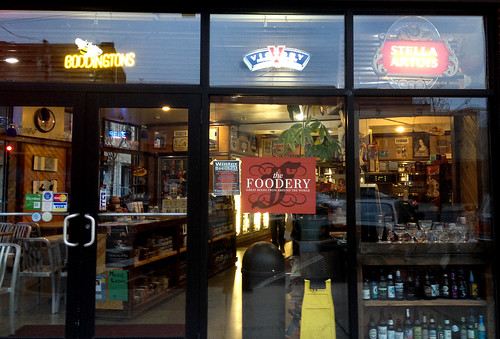
Main Campus basks in a barren liquor desert, but lawmakers are pushing for change.
A new report released by Pennsylvania Governor Tom Corbett’s office on Oct. 3 outlines plans to privatize state-run liquor stores, which could bring one or more liquor stores closer to Main Campus.
A handful of corner stores sell beer around Temple, but students must travel at least a mile-and-a-half to purchase liquor or wine to the closest state-Wine & Spirits–forcing students who reside around Main Campus to live in a liquor-desert. But that could change.
The report, compiled using an analysis conducted by Public Financial Management, Inc., details what would happen if the Pennsylvania Liquor Control Board relinquished ownership of its 613 retail stores.
Pennsylvania is one of 18 control states that control liquor sales. In fact, Pennsylvania and Utah are the only states that still control both wholesale and retail sales of alcohol.
With a complicated set of liquor laws that link back to Quaker regulations, the state ranked 40th out of all 50 states in alcohol consumption in 2009.
“I think it’s probably a good political move for [Corbett],” Megan Mullin, a political science professor said. “The people who don’t really like it are union members. In Pennsylvania, maintaining union support is important.”
PLCB has an estimated 5,700 full and part-time employees and oversees approximately 200,000 liquor licenses and permits statewide, according to the governor’s executive report. The report also states that during the last decade, PLCB’s revenue had a compound annual growth rate of 3.5 percent, while expenses had a CAGR of 5.5 percent.
Robert Bray, a junior psychology major, has worked in various liquor stores in Bucks County.
“I agree with the concept of having it privatized. But last year, that’s how we balanced our budget, with all the profit we made,” Bray said. “Getting rid of that kind of income, no matter how much we sell it for, right away it’ll be great. But down the line, it’s a stupid idea.”
By privatizing stores, the state hopes to cut down on the revenue lost from Pennsylvanians and other consumers who buy their alcohol in nearby states, to avoid PLCB taxes. However, the money it collects from selling stores would only be a one-time infusion of money. There is also a possibility of less stores, instead of more.
“I think there will be less stores,” Bray said. “But if you think of all the rural areas, where the Liquor Control Board can afford to keep a store that’s not making much profit, just to keep a store out there, private companies aren’t going to want to put the money out for that.”
According to the report, 18 of the 20 most densely populated counties account for nearly 82 percent of statewide PLCB sales.
In the 2009-10 fiscal year, the PLCB determined 53 stores to be unprofitable, more than twice than the previous year.
“I think that as long as the state government doesn’t spend too much money in regulation, I think that overall it’s a good idea,” Tyson Barnhart, a junior electrical engineering major, said. “Pennsylvania puts, it seems like a lot of money into the regulation of wine and spirits.”
Barnhart predicted the number of stores would increase, even in rural areas, due to the revenue generated by the market and the fact that the stores are already built and equipped for business.
“Someone’s going to go in and they’re going to open a chain of stores, and it’ll be their livelihood,” Barnhart said. “I think there are enough people who are looking to make money, like enterprising-type people, that would for-sure jump on it.”
That is where Dave Davies of WHYY sees a problem. In an editorial published Oct. 28 on NewsWorks, WHYY’s online contingent, Davies predicted the effects chain liquor stores could have on workers:
“Stores like Walmart compete aggressively to drive down prices, so we get a great selection of goods and get them cheaper. But they also drive down labor costs, lowering living standards for their workers and those employed by their suppliers.”
“Business owners will like it. I think modern suburbanites will like it,” Mullin said.
In fact, some businesses rely on alcohol sales. Sean Agnew is a concert promoter and a founder of R5 Productions, which recently opened Union Transfer, an all-ages music venue on Spring Garden Street. At a panel discussion on Thursday, Nov. 17 on Drexel University’s campus, Agnew said he makes most of his profit from alcohol sales.
Agnew said privatization would affect his business by, “zero percent.”
“It would just mean we’d buy our alcohol not from the state but from a private store,” Agnew said.
Mullin said she does not think, if the measure fails to bring in the proposed capital and jobs, Corbett’s chances for reelection will be hurt.
“I don’t think this is a salient issue for anyone,” Mullin said. “Except those who work in those stores.”
Amelia Brust can be reached at abrust@temple.edu.


Be the first to comment